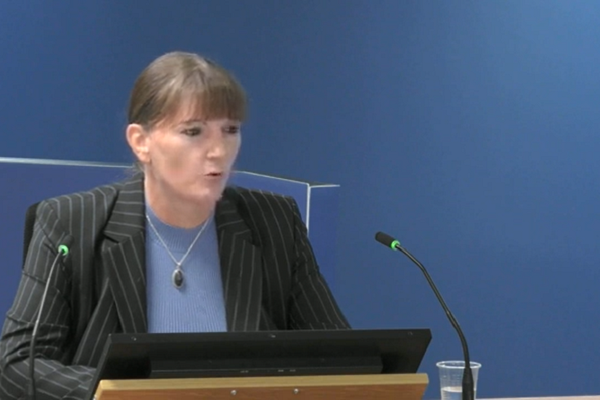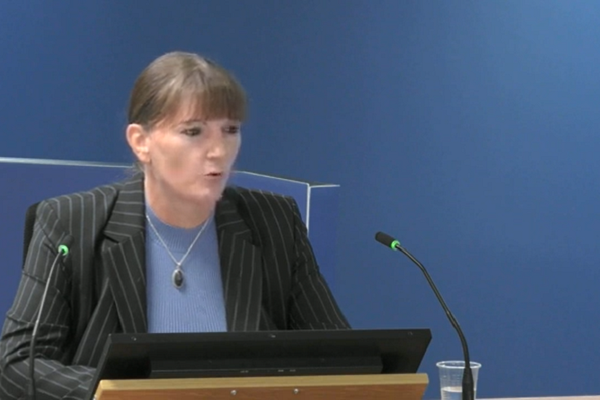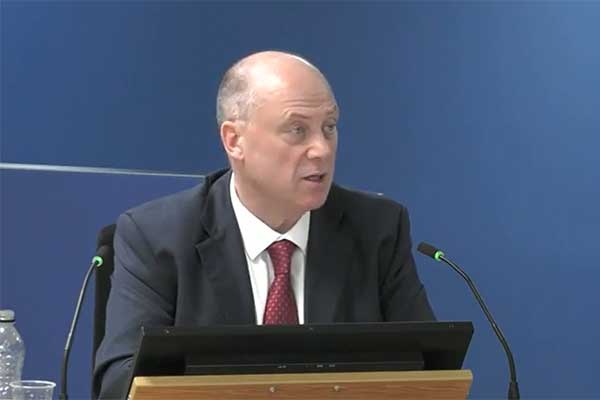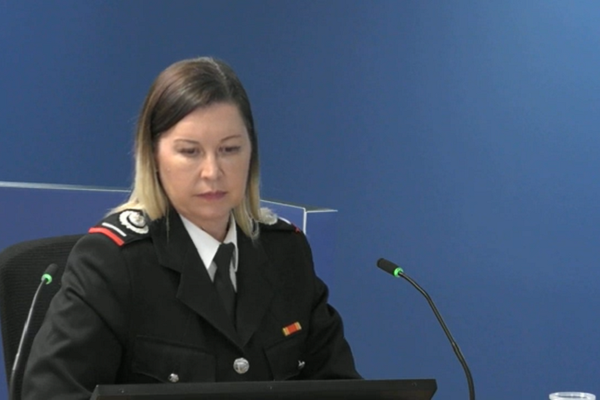LFB ‘forewarned’ on cladding but failed to implement national guidance, Cotton accepts
A former commissioner of London Fire Brigade (LFB) has accepted that the organisation was “forewarned” about the fire risk from external cladding and “failed to implement” national guidance on it published three years before Grenfell.
The Grenfell Tower Inquiry today heard a second day of evidence from Dany Cotton, who became commissioner of the LFB in 2017.
When she appeared before the inquiry in 2018, she was criticised for saying the Grenfell Tower fire was as foreseeable as a “space shuttle landing on the Shard”, despite several large cladding fires worldwide and some more-minor incidents in the UK.
But today she accepted that national guidance had warned brigades of the risk from cladding three years before the fire; guidance which the LFB had not implemented
In 2014, the National Operational Guidance Programme (part of the National Fire Chiefs Council) published a document titled Fires in the Built Environment.
Shown this document today, Ms Cotton – who was in charge of operational assurance at the time – said she had never seen it before, explaining that it would have been viewed by another department responsible for preparing LFB policies.
“Are you saying that National Operational Guidance was irrelevant to your job, unless and until it was effectively domesticated into London Fire Brigade policy?” asked counsel to the inquiry Richard Millett QC.
“It wasn’t irrelevant, but… the operation assurance team would work to London Fire Brigade policies which were developed from National Operational Guidance by the operational policy team,” she replied.
A section in this guidance on external cladding warned materials used in the system “may be combustible” and that they may promote “hidden fire spread”.
“Do you accept that, as at 2014, there were materials available to fire rescue services nationally… that forewarned the LFB of what cladding was and the fire risks that are posed?” Mr Millett asked.
“Yes, this document clearly states that,” she replied. She said implementing training in relation to it fell within the remit of another department.
“Leaving aside whose fault within the LFB it was, do you accept that in failing to issue any form of policy or training that covered cladding, that the brigade was at fault and failing to follow and implement national guidance?” Mr Millett asked.
“Yes I do,” she replied, also accepting that this was a “failure of its health and safety responsibilities”.
Another section of the document covering “means of escape” added that fire authorities should be aware of the risk of “facade fires”.
Ms Cotton accepted that this was a “warning to prepare firefighters for facade failures” and failing to do so “was a failure to implement national guidance”.
The inquiry also saw emails from January 2016 when senior officers, including Ms Cotton, discussed a huge cladding fire at the Address hotel in Dubai.
The email contained a link to an article in a specialist fire safety publication titled “Fatalities will happen ‘sooner or later’ warns fire safety expert after Dubai blaze resurrects fears over flammable cladding”.
One of Ms Cotton’s colleagues, Tony Biles, responded to this email by writing “always knew 12.7 would be used somewhere by someone. Always relied on it heavily during my career.”
Ms Cotton responded: “I’m surprised it’s taken them so long to reference this important piece of information.”
Ms Cotton said Mr Biles was being “flippant” with this email and said she did not know what he meant. She denied any knowledge that 12.7 is the passage of official UK building regulations guidance, Approved Document B, which covers the combustibility of insulation used in a cladding system.
“Looking at the email run from someone who wasn’t involved in it at the time, [that it referred to Approved Document B] is a fair reading of it, isn’t it?” asked Mr Millett.
“If you didn’t understand the context and the people involved in it, yes, possibly,” she replied “But I know it wasn’t, because I know that Tony Biles would not have been familiar with Approved Document B... any more than I was.”
Earlier, Ms Cotton had complained of being frustrated by delays to training she linked to the privatisation of the brigade’s training services to an external provider, Babcock, in 2012.
The inquiry has heard a stream of evidence about how crucial training to both incident commanders and control room operators identified as necessary to prevent a repeat of the 2009 Lakanal House fire was either delayed, insufficient or not rolled out.
Shown figures showing incident command training for more senior officers was still either being piloted or scoped out by the time of the Grenfell fire in June 2017, Ms Cotton accepted that progress was “extremely slow”.
“It was worse than slow, it was sluggish,” she said. “I would regularly report to [senior officers] about my frustrations and my serious concerns about the lack of progress that was being made.
“This was one of my greatest frustrations and angers: the lack of ability of Babcocks to be able to develop this training. And it was a subject of a regular conversation at several different boards, because it was unacceptable how long it took.”
“Did anybody, to your knowledge, yourself included, within the brigade ever ask themselves whether instead of simply blaming Babcock for the sluggish progress, there was something they could do to take back control of the course content and delivery in order to speed things up?” asked Mr Millett.
“Unfortunately, yes, this was a conversation we had, but as we had signed up to a very long-term contract with very specific details with an outsource training provider, it was something that wasn’t possible to do,” she said.
“Did anybody actually go back and work out why it was LFB ended up in a position whereby their outsourcing arrangements had so tied their hands that they could not speedily address the Lakanal House coroner’s recommendations in respect of incident command training?” asked Mr Millett.
“I’m sorry, I think this question would have to be directed to the then commissioner, Ron Dobson,” Ms Cotton replied.
She later explained that one of the reasons the LFB never moved to a new model for decision-making for incident commanders was because she knew the process of commissioning training from Babcock would be “sluggish, slow, long, difficult and drawn out”.
The inquiry continues with further evidence from Ms Cotton tomorrow.
Sign up for our fire safety newsletter
Already have an account? Click here to manage your newsletters




